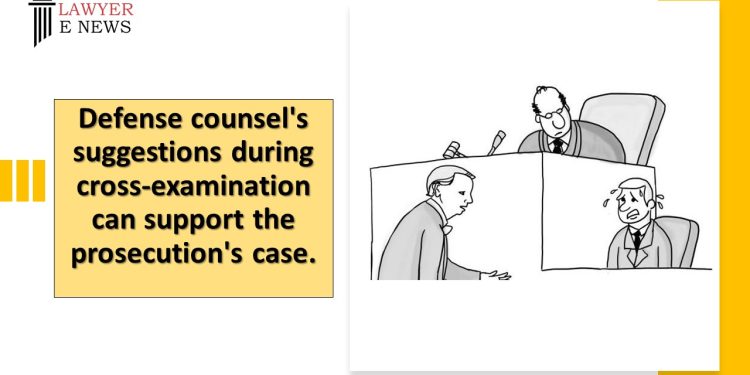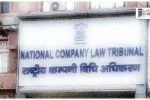Defense counsel’s suggestions during cross-examination can support the prosecution’s case.

On 29 March 2023 , Supreme Court in recent Reportable Judgement (BALU SUDAM KHALDE AND ANOTHER Vs. STATE OF MAHARASHTRA) observed that suggestions made by the defense counsel to a witness in cross-examination, if found to be incriminating in nature, would definitely bind the accused, and the accused cannot get away on the plea that his counsel had no implied authority to make suggestions in the nature of admissions against his client. Any concession or admission of a fact by a defense counsel would be binding on his client, except the concession on the point of law.
Facts
The case involves the prosecution of two appellants and two other co-accused for the murder of a man named Abbas Baig and the assault of the first informant, Asgar Shaikh. The incident occurred on April 1, 2001, when the first informant was talking with the deceased and the appellants were passing by. There was a verbal altercation between the deceased and appellant No. 2, and later appellant No. 1 and two other co-accused joined them. A fight broke out, during which the first informant was assaulted on his head, and the deceased was attacked with a sickle and sword, leading to his death. Various pieces of oral and documentary evidence were presented by the prosecution, and the statements of the appellants were recorded under Section 313 of the CrPC. The appellants denied the charges against them, claiming that the witnesses deposed falsely due to communal tensions. Trial Court convicted the appellants for the offence punishable under Section 302 read with Section 34 IPC and sentenced both life imprisonment. The original accused Nos. 2 and 4 were ordered to be acquitted of all the charges. High Court upheld the sentence.
Arguments
appellants argued that the High Court made a serious error in dismissing the appeal against the judgment and order of conviction. They claimed that the eyewitness accounts were unreliable and should be discarded, and that the first informant’s presence was doubtful since there was no medical certificate proving his injury. Appellants also argued that the discovery of the weapons under Section 27 of the Act 1872 could not be relied upon, and even if the case was believed to be true, it would fall under Exception 4 to Section 300 of the IPC and be considered culpable homicide not amounting to murder.
State opposed the appeal on the grounds that there is no good reason to doubt the ocular version of the eyewitnesses and that the appellants acted in a cruel manner by inflicting nine injuries on the deceased with dangerous weapons. State also argued that the discovery of the weapons points towards the conduct of the accused persons and supports the case of the prosecution.
Observed and Held
The Supreme Court has stated that the appreciation of oral evidence is a difficult task and there is no fixed formula for it. The Court has outlined certain principles to be followed while appreciating ocular evidence in a criminal case. The Court has emphasized that the evidence of a witness must be scrutinized and evaluated, but minor discrepancies or variations should not be given undue weight unless they are incompatible with the credibility of the witness’s version. The Court has also noted that witnesses cannot be expected to have photographic memories and recall every detail, and their powers of observation and time sense can vary. Additionally, the Court has recognized that witnesses can be overawed by the court atmosphere and cross-examination and may mix up facts or fill in details from imagination. Finally, the Court has noted that a former statement need not necessarily discredit a later statement unless it has the potency to do so.
The Supreme Court observed that there is no fixed formula for the appreciation of ocular evidence in a criminal case. However, it enumerated certain principles to be followed while assessing the value of evidence given by eyewitnesses, particularly an injured eyewitness. The Court emphasized that the presence of an injured eyewitness at the scene of the occurrence cannot be doubted unless there are material contradictions in their deposition, and their evidence cannot be doubted on account of minor contradictions or embellishments. The Court also considered the plea or case put forward by the accused while assessing the value of prosecution evidence. Supreme Court examined the oral evidence of the eyewitnesses and found it consistent and reliable. The Trial Court and the High Court also held that the eyewitnesses were reliable witnesses.
The Supreme Court observes that in the exercise of the power under Article 136 of the Constitution of India, the Court normally does not interfere with the concurrent findings of fact, except in very special circumstances or in case of a gross error committed by the courts below.
The Court also notes that the evidence of the eyewitnesses in this case is consistent and there is no good reason to disbelieve their testimony. The Court further points out that the defence counsel admitted the presence of the first informant at the scene of the crime and the fact of the assault. The Court acknowledges that suggestions put by the defence counsel to a witness in cross-examination may not have evidentiary value and do not bind the accused, but notes that the admission of the presence of the first informant strengthens the case of the prosecution.
The Supreme Court observed that suggestions made by the defense counsel to a witness in cross-examination, if found to be incriminating in nature, would definitely bind the accused, and the accused cannot get away on the plea that his counsel had no implied authority to make suggestions in the nature of admissions against his client. Any concession or admission of a fact by a defense counsel would be binding on his client, except the concession on the point of law.
The Court further stated that suggestions made to the witness by the defense counsel and the reply to such suggestions would definitely form part of the evidence and can be relied upon by the Court along with other evidence on record to determine the guilt of the accused. The Court emphasized that the main object of cross-examination is to find out the truth on record and to help the Court in knowing the truth of the case. During the course of cross-examination, suggestions are hurled on the witness to discredit the witness or to establish the defense on preponderance of probabilities. If such suggestions, and the answer to those, incriminate the accused in any manner, then the same would definitely be binding and could be taken into consideration along with other evidence on record in support of the same. However, it would depend upon the nature of the suggestions and with what idea in mind such suggestions are made to the witness.
The Court also provided examples of cases where the accused would plead right of private defense or more than one defense, and how such defenses would be considered in determining the guilt of the accused.
The Court also discussed the principle of res gestae, which is embodied in Section 6 of the Indian Evidence Act, 1872. This principle states that a fact which, though not in issue, is so connected with the fact in issue “as to form part of the same transaction” becomes relevant by itself. The Court noted that a witness like PW3 Nasir Rajjak Khan, who had heard about the incident immediately from PW1 Asgar Shaikh, could be termed as a res gestae witness. The Court stated that the statements sought to be admitted as forming part of res gestae must have been made contemporaneously with the acts or immediately thereafter.
The court considered whether the incident comes within any of the exceptions indicated in Section 300 of the Indian Penal Code (IPC). To bring the case within the fourth exception, the court held that the essential requirement is that the act was done in a sudden fight without premeditation, in the heat of passion upon a sudden quarrel, without the offender having taken undue advantage or acted in a cruel or unusual manner.
The court noted that it is always assumed that such a case would be a case of murder, and it is for the accused to show the applicability of the exception. The court also held that for cases to fall within clause (3) of Section 300 of the IPC, it is not necessary that the offender intended to cause death, so long as the death ensues from intentional bodily injury or injuries sufficient to cause death in the ordinary course of nature.
Court found that the appellants had inflicted as many as nine blows with a dangerous weapon on the deceased who was unarmed and helpless. Therefore, the court held that no case was made out by the appellants to interfere with the impugned judgment and order of the High Court, and the appeal was dismissed.
BALU SUDAM KHALDE AND ANOTHER Vs. STATE OF MAHARASHTRA






